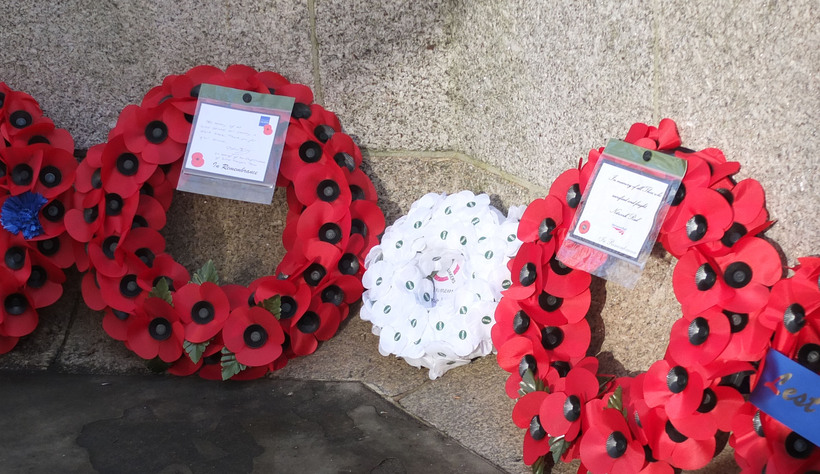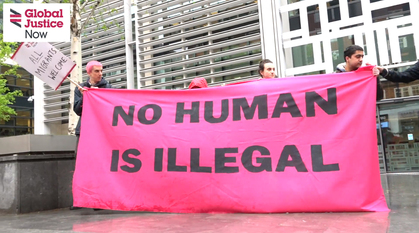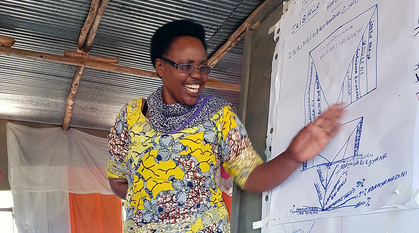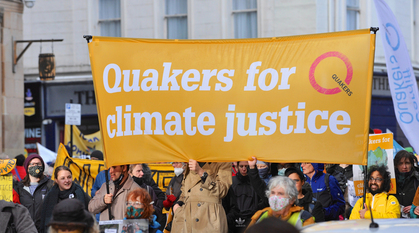Remembering, cooperating, and working for change
How does it feel to be a Quaker in an important civic role who is invited to be part of the remembrance day service at the town war memorial? Does the military involvement risk celebrating rather than commemorating? How can we show respect without forgetting civilian victims, how can we prioritise 'Never Again' over glory?

Remembrance Sunday falls on 9 November this year. Many Friends will wear a red poppy. Others will prefer to wear a white poppy, or both, and to attend meeting for worship for an hour's contemplative silence as usual instead of two minutes at a war memorial.
When I was a child in Oxford Meeting in the 1960s the children's meeting group was taken out to watch the parade in St Giles on Armistice Day, Remembrance Sunday. I remember rows and rows of old men with medals and no legs, pushed in wheelchairs at the head of an enormous procession of people in uniform. Working to prevent war, to stop wars, to help people recover from war but above all to work for peaceful relationships and decision-making which 'take away the occasion of all war' seemed to me then, and now, to be the point of Remembrance Sunday.
So we remember the people who were lost or their lives forever altered because diplomacy had failed. There are physical and mental injuries to soldiers, and civilians too. We remember them all. But what does that look like in formal commemorative services?
Sally's Story
Sally is a Quaker who became Mayor of her town. She says:
"During my service as Mayor I was invited to a number of events encompassing D-Day, the commemoration of War Graves during Black History month and Remembrance Sunday. These events fall into the civic calendar and are non-negotiable as the Town Council is required to demonstrate respect and adherence to civic protocols. Our town has a strong military history, widely remembered and affecting even the smallest details: the Mayor's chain is inscribed on the back with the name of a local soldier who died in WWII.
As the Mayor, I want to act with integrity. Part of my role is about bringing people together, helping to build trust and understanding, and speaking up for those who may be largely unheard.
I wanted not only commemorate those who lost their lives in world wars and other conflicts, but to also use the opportunity to engage local schools and communities to consider how we can grow in a peaceful way. For example, in one service I was joined by a local primary school pupil who read her own poem, 'The Meadows of Friendship', which highlighted the importance of rebuilding bridges and trust.
I was privileged to attend our local commemoration of Black History Month, listening to the history of some of the 300 Commonwealth War Graves and those from the British West Indies Regiment. I was touched with the young ages on the grave-stones: from seventeen years to mid-twenties. West Indian and African soldiers provided much needed manpower in fighting the war but they also encountered negative attitudes. The work of Black History Month hopefully helps to unravel some of this and help us understand one another better.
Commemorating D-Day was a poignant reminder of how much a recognition of our history can also shape our future. I spoke of the profound sacrifices made and reminded us of the unwavering spirit of purpose, cooperation and resilience. I reflected upon the fact that D-Day shapes our world to this day, and exemplifies the spirit of cooperation which continues to shape international efforts for peace and disarmament."
Turning to the future
Today these aspirations are guiding points in the way we as residents, councillors and officers develop our plans for the future of our town.
Within our local Quaker meeting we have two members who have been Mayor. We agreed it would be more disrespectful to try and use our civic role to change local traditions of wearing a red poppy at the commemoration. If we wished to do this it needed to be as a civilian. Our meeting also made the decision not to lay a white poppy wreath as this action would possibly cause more upset than we needed.
I am enormously grateful for my local meeting who provide a sanctuary within which I can consider how to put my faith into action. Their Friendship and support during my Mayoral year gave me the opportunity to explore new ideas and their enthusiasm to share in the improvements we can make together was both an anchor and affirming.
Attend the Movement for the Abolition of War's Remembrance lecture


